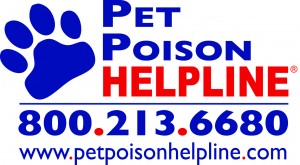~I am a small animal veterinarian that is new to this whole blogging thing. I was prompted to start this page by my friends, family and even the lady in the check out line asking the same question: "I have this dog/cat and they do this. Is that normal?" I thought a blog page might be a good way to share some of my stories and maybe in the process, educate people, about these wonderful things we call 'animals'.~
Thursday, July 26, 2012
Stuffed Animal Clinic
Is your teddy bear feeling under the weather? Does your stuffed animal have a cut that needs fixing? Does it need some extra care and attention? Arlington South Veterinary Hospital is here to help! Our veterinarians and staff are holding a Stuffed Animal Clinic on Saturday, August 11th from 2 pm to 5 pm. All proceeds go to Meals on Wheels of Tarrant County, to help with their animal outreach program.
It’s a day to fix the ailments affecting your teddy bear or beloved stuffed animal. Veterinarians, staff members and volunteers will assess the overall health of your stuffed animal, as well as make a diagnosis based on your description of its symptoms. Medications or bandages will be available if needed.
You will begin your visit with a stop at the reception desk, where your animal will be checked in and given a health certificate. The receptionist will then direct you to the next available stuffed animal doctor, who will care for your animal’s well-being and sign your certificate, indicating a clean bill of health. If your animal has a tear that requires stitches, you will be asked to leave the animal with trained staff and return later to retrieve the mended patient. The entire visit only costs $3, and you will leave with a healthy stuffed animal and a certificate to prove it! Stuffed animals will be available for adoption for $1!
Please call for information or directions:
Arlington South Vet Hospital
5505 Matlock Road
Arlington, Texas 76018
817-465-1401
Thursday, July 12, 2012
Most Common Canine Poisonings of 2011
The Pet Poison Hotline released their list of the top 10 most common dog emergencies in 2011. I always find what dogs will eat so entertaining!! Some of them aren't even tasty!?!?
1. Foods (chocolate, xylitol, grapes and raisins)
2. Insecticides (sprays, bait stations, and spot-on flea and tick treatment)
3. Mouse and rat poison
4. Non-steroidal anti-inflammatory human drugs (ibuprofen and naproxen)
5. Household cleaners (sprays, detergents and polishes) -Really? This can't be good tasting or even fun to chew!!!
6. Human antidepressant drugs (Prozac, Paxil, Celexa and Effexor)
7. Fertilizers (bone-meal, blood meal and iron based products)
8. Acetaminophen, a human drug (Tylenol and cough and cold medicine)
9. Amphetamine human drugs (Adderall and Concerta)
10. Veterinary pain relievers (Rimadyl, Deramaxx and Previcox) My own dog ate about 10x's her prescribed dose!!! The cat fed them to her!!
All the things listed above can be very deadly if eaten in adequate amounts. Always call your veterinarian if your pet has eaten something. They can tell you if it is toxic and what you should do. This may include just watching your pet or bringing it in to induce vomiting and intravenous fluids. It is different for every case.
The other bit of advice I have is that never assume your pet can't get to a certain medication or food. I have seen little dogs use chairs and drawers to get up onto counters. Or in my case the cat got up on the window sill and knocked the meds down for the dog to eat....

1. Foods (chocolate, xylitol, grapes and raisins)
2. Insecticides (sprays, bait stations, and spot-on flea and tick treatment)
3. Mouse and rat poison
4. Non-steroidal anti-inflammatory human drugs (ibuprofen and naproxen)
5. Household cleaners (sprays, detergents and polishes) -Really? This can't be good tasting or even fun to chew!!!
6. Human antidepressant drugs (Prozac, Paxil, Celexa and Effexor)
7. Fertilizers (bone-meal, blood meal and iron based products)
8. Acetaminophen, a human drug (Tylenol and cough and cold medicine)
9. Amphetamine human drugs (Adderall and Concerta)
10. Veterinary pain relievers (Rimadyl, Deramaxx and Previcox) My own dog ate about 10x's her prescribed dose!!! The cat fed them to her!!
All the things listed above can be very deadly if eaten in adequate amounts. Always call your veterinarian if your pet has eaten something. They can tell you if it is toxic and what you should do. This may include just watching your pet or bringing it in to induce vomiting and intravenous fluids. It is different for every case.
The other bit of advice I have is that never assume your pet can't get to a certain medication or food. I have seen little dogs use chairs and drawers to get up onto counters. Or in my case the cat got up on the window sill and knocked the meds down for the dog to eat....

(888) 426-4435
Subscribe to:
Posts (Atom)
